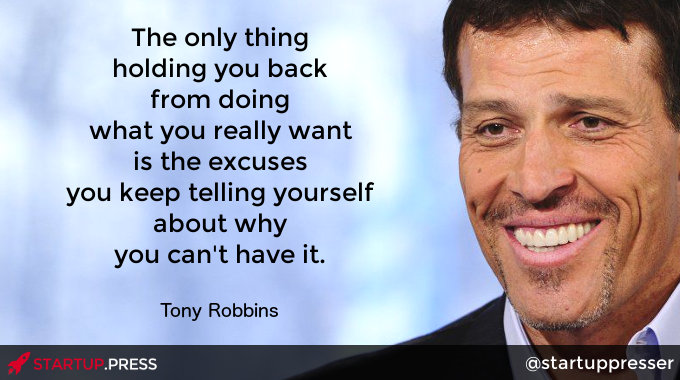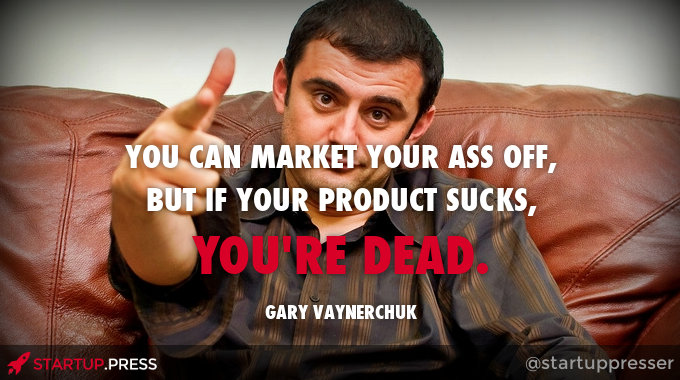From conception to launch, there’s nothing easy about being a startup founder. The road will likely be arduous. Few people will help you at first. If history is any lesson, there will be many failures followed (hopefully) by a few smashing successes.
Following are 6 questions you need to ask yourself, starting when the first inkling of running your own business sets in, and then later as you progress into the launch stage.
1. Does fear of failure rule your thinking?
Perhaps you’re trying to think of what you want to launch and the fear of failure’s getting in the way? Or, you have a lifelong fear of stepping outside your comfort zone for fear of the unknown?
Fear of failure will always hold you back. If you can’t handle the heat, stay out of the kitchen! Tony Robbins has frequently said “The only thing holding you back from doing what you really want is the excuses you keep telling yourself about why you can’t have it.”

If fear is the resounding story inside your head, you need to find a way to shake it out.
2. What would give you the biggest sense of satisfaction?
Being a startup owner is much different from being one of the investors you’ll no doubt be calling upon in the near future, once you’ve realized some successes in your new business. VCs and angels don’t necessarily need to love what you do to make money off your ideas; but you must get some sort of personal satisfaction from the business in order to make it successful and stick with it.
- Are you a maestro in the kitchen?
- Great with cars?
- Do your friends call you the dog whisperer or some other kind of animal expert?
Once you’ve gotten in front of your fears, you need to find a good starting point for an idea. Doing something you love is a great place to start looking. The less you look at the clock while doing that something, the more rewarding it’ll be a few years from now.
3. What problem does your product solve?
Of course your product has to solve a problem. Whether it’s a pain point for the end user, or simply a fulfilling a burning desire they have, such as traveling on a budget or a machine that makes their Grande Latte for them in the morning at just the right time.
Problems and solutions…
That’s the key to launching a business that has a firm hold in the marketplace. Otherwise, you’re going to be running a company that only you believe in. Meaning, you won’t have any investors willing to put money into your business to help grow it, and no customers opening their wallets to make a purchase.

4. Can you create a marketable story to back the product?
Brands are built on stories. The story behind what made you create the company and its products will help establish brand trust and most importantly, to sell those products.
The story can be about the “aha” moment where the stars aligned and the puzzle pieces suddenly fell into place, or, and this is the best way: the painful circumstances that led you to create a product or service.
The story will tell the buying public how you became to be uniquely positioned to fix whatever ails them.
5. Will people, other than you, actually like the product?
This will be a tough question to answer while sitting around and contemplating. You’ll have to get out there and do some preliminary market testing. Don’t just ask friends and family, unless you know they’re not the type to sugar-coat their opinions to save your feelings.
When readying yourself to launch an idea that’s going to take considerable time and likely plenty of your hard-earned cash, you don’t want to live in a bubble. Why wait until afterward to find out you’ve been cultivating a dud all this time?
6. Can you will yourself to drop a bad idea after you’ve already invested in it?
Sticking with a bad idea just because you’ve put some time and money into already it is the bane of any entrepreneur’s existence. Hey, the reality is that sometimes things go south – or just never seem to line up at all from the get-go. At some point you have to be smart and let go, before that bad idea completely destroys you.
Can you do it, if you have to?
There’s so many stories out there of successes that had to persevere to no end before they made any measurable progress. But, thinking too much in the positive, when you have a miserably bad idea that the market has rejected, can waste immeasurable time you could be devoting to the next idea.
Just like what Gary Vaynerchuk said, “You can market your ass off, but if your product sucks, you’re dead.”

Set goals, have a firm timeline in place for your first, second, and third planned threshold. If you find things faltering, reassess and determine if it’s you doing something wrong, or the market’s telling you it doesn’t want what you’re selling.
To conclude…
Asking and honestly answering these 6 questions can save you a lot of time, money, and aggravation as a new entrepreneur. Learn how to get the right answers and you’ll be well on your way to business success in no time.




